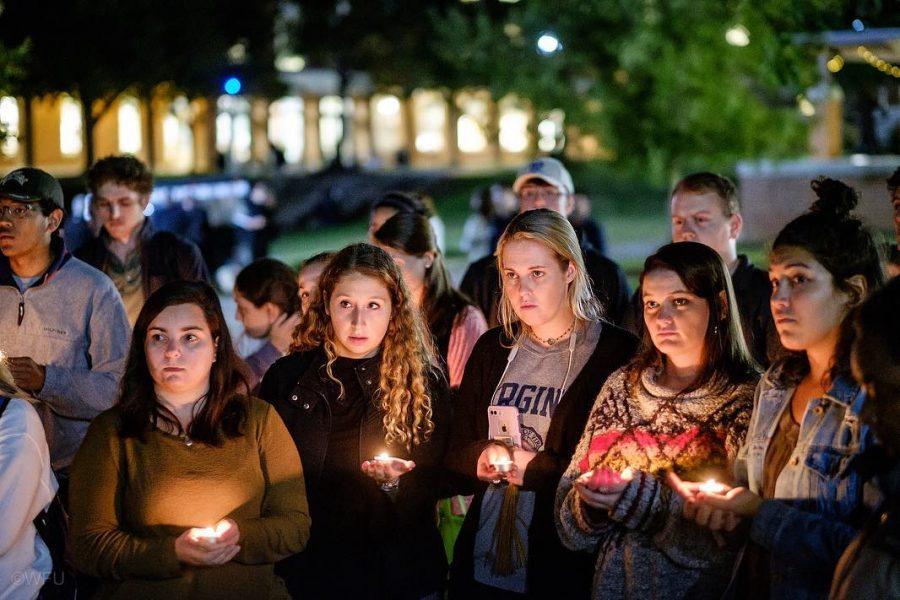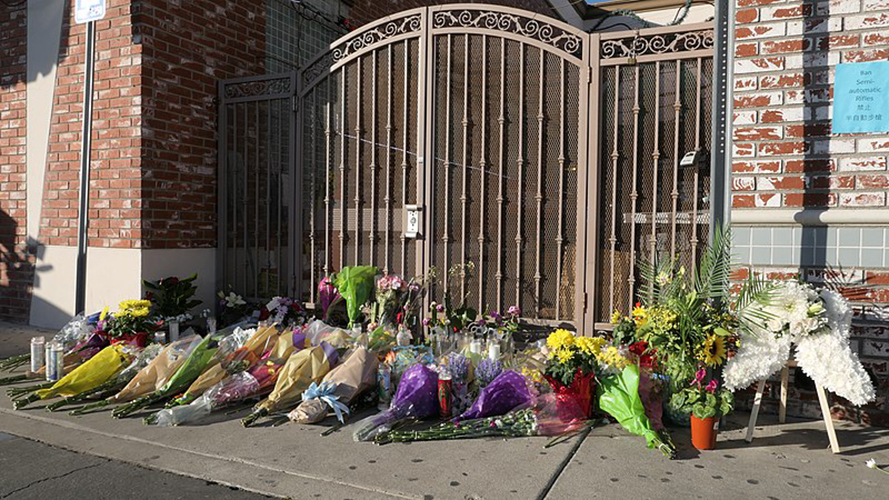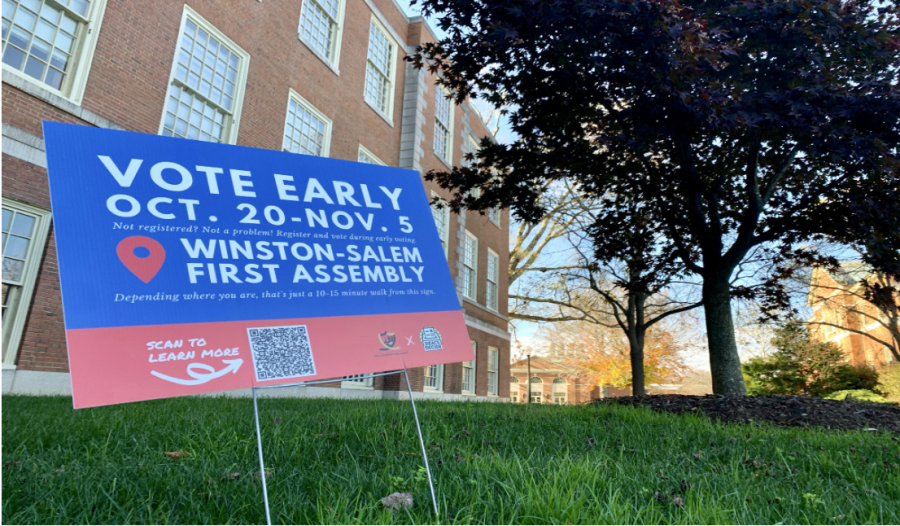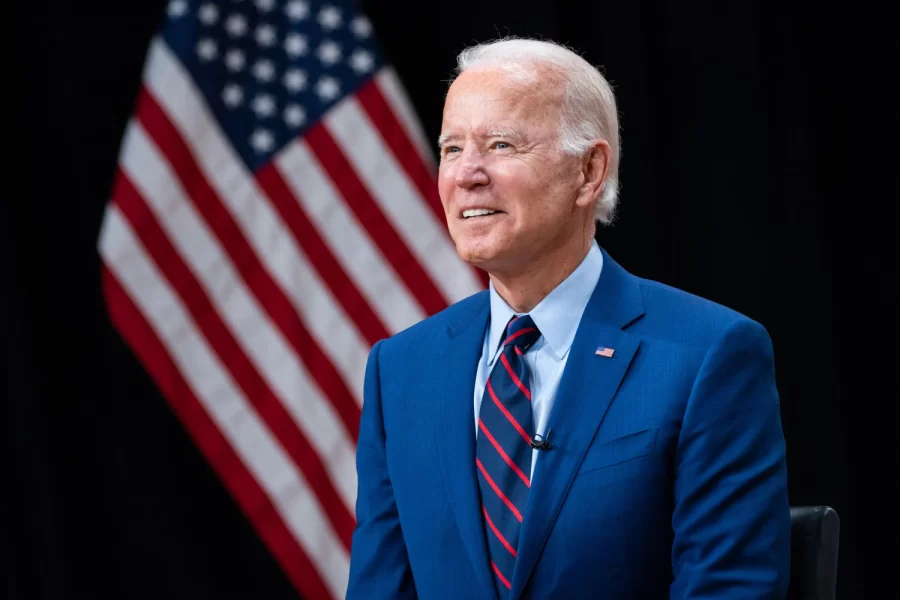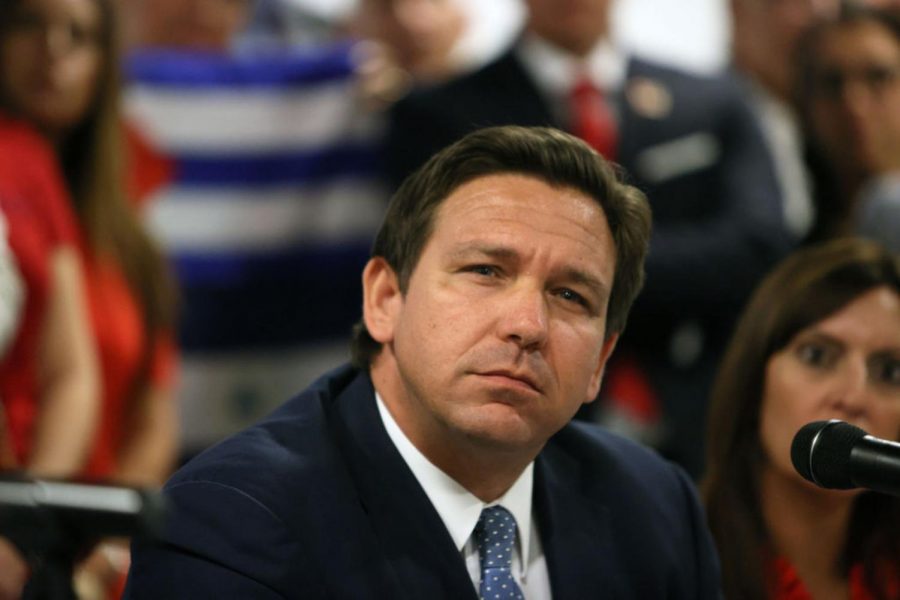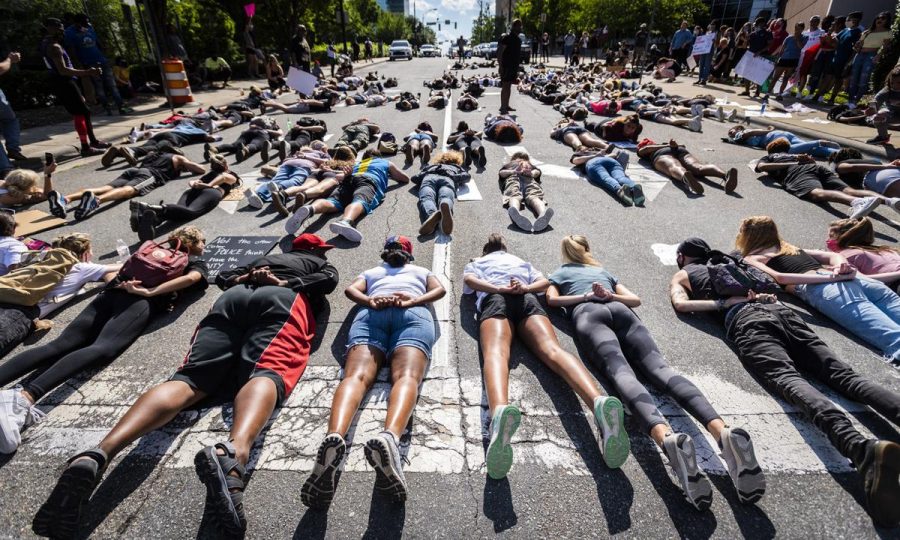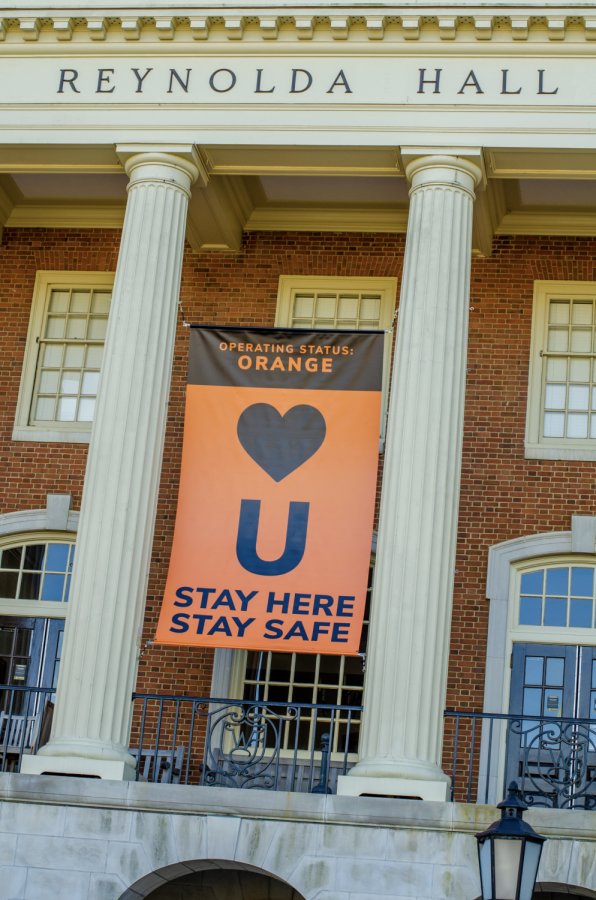As Wake Forest President Nathan O. Hatch said in an email on Sunday regarding the Tree of Life massacre, “Freedom of conscience and the right to worship freely were causes to which the founders of Wake Forest, in the Baptist tradition, were especially committed. To attack a house of worship is an attack on the very ideals that founded our nation. The overt anti-Semitism expressed in this attack is particularly painful.”
A man shouting antisemitic slurs opened fire on people attending Shabbat morning services at the Tree of Life synagogue in Pittsburgh on Saturday, Oct. 27. As a way of showing support for those affected by the synagogue shooting, Hillel, Wake Forest’s Jewish student organization, joined Penn State, Harvard, Vanderbilt, and other colleges nationwide in hosting a vigil to pay respects to the 11 victims of Saturday’s tragedy. Hillel Marketing Chair Molly Sugarman took the lead in organizing the event held last night where over 100 people gathered on Manchester Plaza to show community support for the Jewish population.
The event began with a series of speeches by Wake Forest Jewish students. Freshman Liat Klopouh shared the story of her parents’ struggle with anti-Semitism in Russia, explaining how they moved to America with “no knowledge of the language, no family, only a suitcase in hand.”
“America was this utopian world where anything was possible,” Klopouh continued with her mother’s experience. “But as hard as it was to make a life for myself here, I could at least embrace who I was and what I believed in.”
After the speeches, Hebrew prayers were chanted, candles were passed out and lit, and a moment of silence was held to honor those whose lives were lost on Saturday.
Sugarman thought this was a meaningful event where “all of the Wake Forest community came together in support against the antisemitic actions that took place in Pittsburgh this past week.”
With both Jews and non-Jews in attendance, Sugarman thinks that last night proved that those who are of a minority group, both on campus and worldwide, as well as those who are not, “have support for one another and that if another minority at Wake Forest or the outside community has troubles, we [Jews, non-Jews, and the community at large] will be there for them just as they were there for us.”
America, home for people of all types, undergoes perennial movements for a wide array of causes ranging from abolitionism and temperance to women’s and civil rights.
In the aftermath of these reforms, Americans of all ethnicities, races, genders, sexual orientations and religions enjoy an unprecedented level of acceptance.
In addition to the Pittsburgh massacre, the preceding 72-hour period included two other hate-filled crimes.
On Wednesday, Oct. 24, a white man with a violent past shot and killed two African Americans at a Kroger grocery store in Kentucky following a failed attempt to barge into a black church. Then on Friday, Oct. 26, Cesar Sayoc, who previously spewed derogatory comments towards Democrats and minorities with hate-filled online messages, was arrested as a suspect in the mailing of 14 pipe bombs to people criticized by President Trump.
The common theme amongst the three events is discrimination against distinct groups. Vitriolic acts are becoming more prevalent. In the aftermath of the “Unite the Right” rally in Charlottesville, VA, last year — where hundreds of neo-Nazis waved swastika flags and threw Nazi salutes — acts of hostility, prejudice, and even violence towards Jewish individuals and/or their property rose nearly 60 percent during 2017, making it the largest single-year increase on record, according to the Anti-Defamation League.
The discrimination seemingly entwined in today’s American culture can be viewed by some as a remnant of Hitler’s Nazism. On Oct. 29 and 30, it was announced that Trump is sending 5,200 troops to the southern border and plans an executive order that would terminate the automatic right to citizenship for children born in the U.S. to noncitizens.
“Today was the turning point for me,” said Professor Barry Trachtenberg, Rubin Presidential Chair of Jewish History and author of The United States and the Nazi Holocaust: Race, Refuge, and Remembrance, in response to Trump’s decision.
“Up until this day, I have resisted every effort by people to say that Trump is a Nazi,” Trachtenberg said. “I’ve always said no, there are differences, fundamental differences … [However,] the fact that he says there is a population who has been fully part of the fabric of American society and saying they are no longer Americans, and believing that he can do so unilaterally, that is Nazism.”
In the aforementioned case, Trump is specifically targeting migrants, potentially making them susceptible to forms of abuse and discrimination.
In the wake of these disheartening events and political actions, college campuses and institutions that produce leaders in American private and public sectors are seemingly at the forefront of egalitarian efforts.


